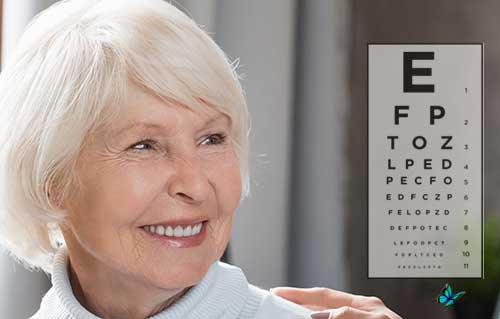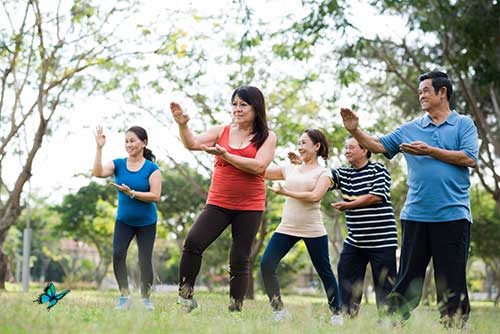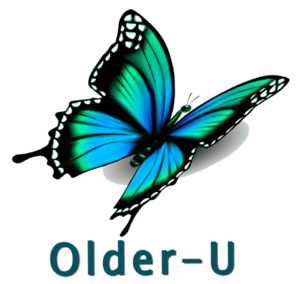Staying healthy and keeping fit, is so important as we get older. We want to feel our best at any age. We have tips that can help you cope with getting older and living life to the fullest.
As we get older and heading into our retirement years it can be a little scary, but it can also be one of the most rewarding times if our life. For many of us, our older years bring with them a certain amount of relaxation and time to do those things we have always wanted to do. If you are lucky, no more work and kids (grandchildren) are ones you only borrow, giving them back at the end of the day.
Hopefully, the stresses we had as youngsters, as many older people these days are now more financially independent, we can put behind us. But getting older have it’s issues over health, so it is really important to take charge of our health. We need to look after our mind and body. In this article, we will examine ways of maintaining health as we get older.
How to Maintain Good Health As We Get Older
- Stay as active as you can and avoid becoming a couch potato.
- Take regular exercise, even if it is only going a short walk a day.
- Eating well with fresh food and making sure we have a balanced diet.
- Ensure you get a good night’s sleep and taking rest as and when we need it.
- Take advice from the medical profession and do not delay in seeing them if you have a problem, no matter how small it seems.
- Keep an eye on your medication, query with your doctor the proscribed medicines you have had in your cupboard a long time.
- Look after your oral health by visiting your dentist regularly, bad gum issues can lead to other illnesses.
- Look after your mental health, keep in touch the with people you know and try to make new friends.
- Try to learn new things, this is a good way of keeping your brain active and healthy.
- Look after your feet by visiting a podiatrist. Your feet carry the whole weight of our body, and looking after them will help you keep well and active.
Staying Active to Keep Healthy and Live Long
As we get older, we often discover a few new lines on our face, or we are feeling more tired than usual. These are often the physical changes to our bodies in as we get our older and can be one of the scarier parts of aging. But with regular exercise, we can offset many of these effects. Exercise has been shown to have an immensely positive impact on both our mental and physical wellbeing.

It has been shown keeping active will boost your energy and mood, keeping anxiety and depression at bay. At the same time, keeping mobile ensures healthy joints, as well as lowering the risk of obesity, heart disease, stroke and diabetes. Some people as they get older, sadly suffer from chronic diseases such as osteoporosis, exercise is crucial for their management of such things.
Doctors normally recommend 150 minutes of moderately intense exercise a week, including strengthening exercises at least twice a week. That might sound like a lot, but it’s only around 30 minutes a day 5 days a week, or 20 minutes if you exercise daily! If you don’t currently exercise, remember that any exercise is better than none. Start small and slowly work up to exercising more often (or more intense exercises) as you get stronger.
A short walk is a great way to get active if you’re just starting out! Initially start off with a pace you can cope with and then move on to a pace that keeps you slightly out of breath or sweaty is ideal. 30 minutes of this every day has been linked to better memory, better health, and longer life.
If you can find a green space to exercise in, this is even better! Trees produce phytoncides, which have been shown to help lower blood pressure, reduce stress and boost immunity. The microbes in forest soil have also been shown to reduce depression and even improve our immunity. Researchers say that a weekend in nature can improve your immunity for up to a month! But if you don’t have a weekend to spare, a short afternoon walk or run somewhere nice and green is enough to guarantee a feeling of wellbeing and better night’s sleep.
Food And Diet As We Get Older
A balanced diet is crucial to keeping us fit and healthy, and it goes hand in hand with the benefits of exercise. With the right diet, you are most likely to stay feeling full of energy and avoid falling ill. A good diet should be low in saturated fats, high in fibre and contain lots of fruit and veg.
The Mediterranean diet is a great one to follow if you’re looking for an easy and nutritional diet. It emphasises olive oil, nuts, seeds, whole grains, legumes and oily fish while being low in red meat, dairy products and processed foods. Red meat consumption is linked to the increased risk of heart disease and cancer, so swapping it out for healthier proteins like fish is a simple way to increase your lifespan.

Intermittent fasting is something that not many of us do anymore, but our bodies have evolved over millennia to go without food for short periods. Mind you if you are considering this, as with any strict diet, you should consult your doctor first. It has been shown time and time again to increase longevity, while some studies also link it to the prevention of Alzheimer’s, Type 2 diabetes, and weight gain.
Our ancestors before us would have followed the extended overnight fast of 14-16 hours, where they ate dinner at sunset, rarely snacked, and had breakfast around mid-morning the next day. This style of intermittent fasting has been shown to improve gut health. Mind you, you must bear in mind people didn’t live as long as we do today and often they died quite young.
Drinking lots of water can help you to feel fuller so that you don’t overeat. It also helps to avoid dehydration, which can leave you feeling tired and confused. Drinking tea, coffee and fruit juice are great alternatives to water and will help you avoid dehydration but watch out for the caffeine.
Avoid those sweet fizzy drinks and other sugary beverages which can cause weight gain and lead to tooth decay. If you drink alcohol, it’s best to leave 2 days a week alcohol-free, so that your liver is able to recover from its toxic effects.
As We Get Older We Need Our Sleep
You should aim for between seven and eight hours of sleep each night, but this does vary from person to person. As you get older, your sleep schedule might shift a bit, causing you to get tired earlier in the evening and to wake up earlier in the morning. This is completely normal and could give you an opportunity to appreciate the serenity of a quiet early morning!

Regular sleeping patterns have been shown to increase longevity, but did you know that naps are also good for you? It has been demonstrated that nappers have better attention spans and are more able to focus, as well as better memory and non-verbal reasoning. An early afternoon nap of around 30 minutes a day should be enough to improve alertness and your overall mood for the day – but make sure not to sleep for more than 90 minutes in the day, as this can be detrimental your nighttime sleep and thus to your health! Read our article on sleep.
Looking After Yourself As You Get Older
Take full advantage of your doctors as you age – whether it is your physician, dentist, optometrist, or a specialist healthcare expert. These people are there to help you, and they can detect any health issues early – before you may have before they become a problem.
Make sure that you are up to date on all your routine tests and inoculations – including checking your blood pressure and cholesterol levels. You should also ensure you have up to date flu shots as you get older.
When you get into older age it may be worth seeing a geriatrician. These are healthcare specialists who provide care and treatment specifically for older people. This is especially helpful if you have one or more chronic medical conditions, take multiple medications, experience issues with your memory or mobility, or have been recently hospitalised.
Specialists like these will have exactly the right contacts to refer you to in your times of need and will be able to help you create a care plan that is tailored to your specific needs.
Periodically Check Out Those Medications We Have Had For a Long Time
With your doctor’s guidance, you should clear out your medicine cabinet of any unnecessary medications. Drugs like antidepressants, bladder drugs, medications for other diseases, including antihistamines and travel sickness pills. A case in point; several studies have linked a high intake of anticholinergics with the onset of Alzheimer’s, even when taken for as little as a year.

If you are taking several pills at the same time, it could be a good idea to speak to your physician, pharmacist or healthcare provider rationalise what you are or about taking alternative medications. Do not suddenly stop taking any medicine proscribed to you without professional medical advice.
A periodic medication review in general is always a good idea. Making sure that you and your doctor keep an open line of communication about what medications you are taking ensures that you are only taking the most necessary prescriptions. The more drugs you are taking, the harder it is to remember how and when to take them all, and the higher your risk for adverse reactions.
That being said, remember that you should always take your medication exactly as your doctor has instructed you to, and you should never stop taking the medication without first consulting your doctor or pharmacist. You can also supplement your medication with Vitamin C and D. Both of these have been shown to help with ageing well and reduce the severity of coughs and colds.
Getting an Eye Examination Checks More Than Our Vision When We Are Older.
You really need to pay a visit to a fully qualified optician and optometrist regularly as you get older, as they are able to pick up many medical conditions through your eyes. Diagnosing these conditions early can genuinely be a sight saver. Sadly, many people suffer very poor eyesight and even blindness, all because of a failure to visit the opticians.
What does an optometrist do when we visit the opticians?
Fully qualified optometrists are trained to recognize any abnormalities in your eyes. They examine the internal and external structure of your eyes to detect conditions such as glaucoma, age-related macular degeneration (AMD) and cataracts. Any one of these conditions can be assisted by an early diagnosis. The optometrist may also test your ability to focus, check the coordinate of your eyes, and see colors and depth accurately.

Well, we have visited the opticians and our eyes are sort of OK, but he said you have the early signs of cataracts coming. Just what are cataracts?
Cataracts are when the lens, a small transparent disc inside your eye, develops starts to become cloudy. Starting with small patches at first, over time these patches usually spread causing blurry, misty vision and even blindness. The good news is that these lenses in the eye can be replaced, by having cataract surgery. Once done most people report the sort of vision they now have, they have not had since they were young.
Well let’s hope you get a clean bill of health when you visit the opticians and all you will need to do is choose a new pair of designer glasses.
As You Get Older You Will Need To Look After Those Teeth and Gums
As you get older and less mobile, it might become a little more difficult to keep up oral hygiene – but it is incredibly important that you do! Poor oral hygiene can lead to gum disease, which causes sore and bleeding gums and is often linked to diabetes, stroke, heart disease and even rheumatoid arthritis. So be sure to brush twice a day and to floss daily! Electric toothbrushes are a great investment, as they remove a lot of the chore of tooth brushing. Today, you can even find electric toothbrushes that have a timer on them.
Mental Health Is Important In Older People
The power of fresh air is easy to underestimate, but a quick walk outside just up the street, in the garden or around the park can make a huge difference to your mood. Being stuck indoors all the time and not getting fresh or not seeing people is really bad for our mental health. Try and make sure you get out every day, even if it’s only for 15 minutes, half an hour pottering about in the garden is great for your overall wellbeing.
Research has linked social isolation to dementia, heart disease, stroke, and depression. Lonely people have a 29% higher risk of dying, with an eight-decade study finding a clear correlation between having a large social network and living longer. So as the years wear on, don’t forget to stay in touch with your loved ones!

Why not invite friends to take part in a class with you, or maybe even join one on your own as a way to make new friends? If you are doing activities that you enjoy, you are much more likely to find friends with similar interests to yours – and recent research shows that good-quality friendships are crucial in increasing our lifespans.
So, assess whether your friends stimulate you, have similar interests and hobbies, and if they have a positive outlook on life that uplifts and encourages you. An ideal hobby here could be Yoga or Tai Chi as with there accent in meditation you would be able to calm your mind and meet new friends at the same time. This links perfectly into our next tip, which is:
Never Stop Learning New Things
Our brains, even as we get older, are still just as well-equipped to build new neurons and synapses as when were younger. Yes, we might be a little slower at picking things up than we used to be, but when we consistently push ourselves to learn new things, we ensure that our brains stay in working order.
New experiences all trigger the creation of neurons, with more complex activities providing greater brain-rewards. Social activities are great for this – whether it’s cooking together, doing arts and crafts together, playing games together, or learning a new dance together – keeping your brain healthy and alert doesn’t have to be done alone.
Recent Posts
Starting To Learn Tai Chi At Home Can Be Done Simply By Using Easy To Understand Videos Tai Chi originated hundreds of years ago in China as an internal martial art but is now used as an exercise...
So you are want to keep fit, and you are thinking of getting a few things to set up your, sort of, home gym. Not many of us can afford to set aside a special room for keeping fit, but a place that...

